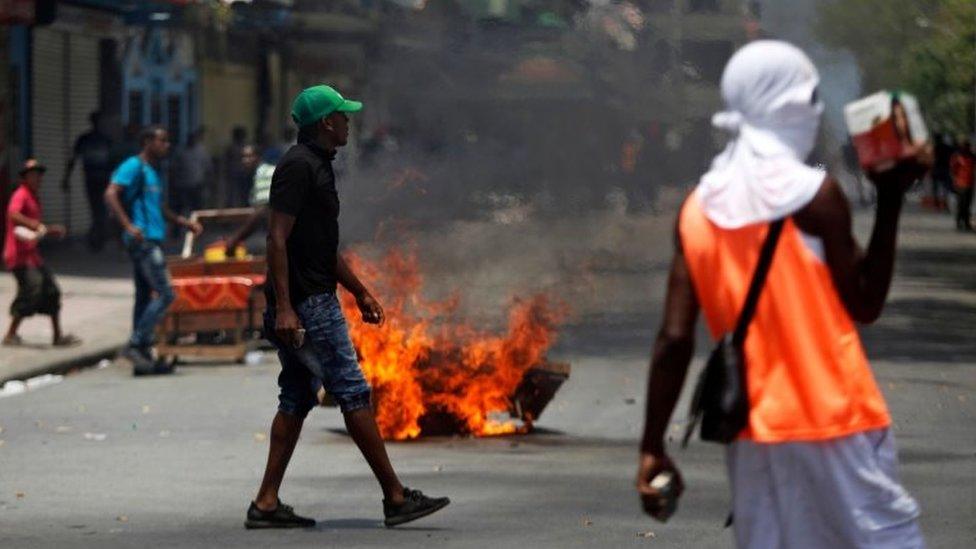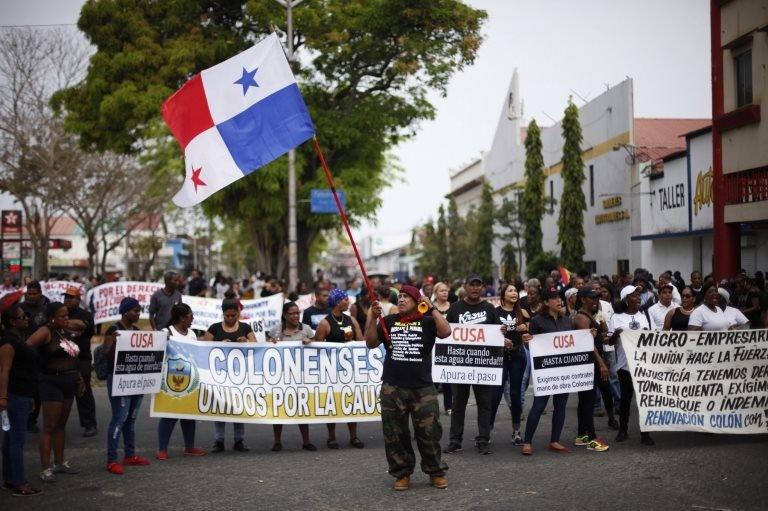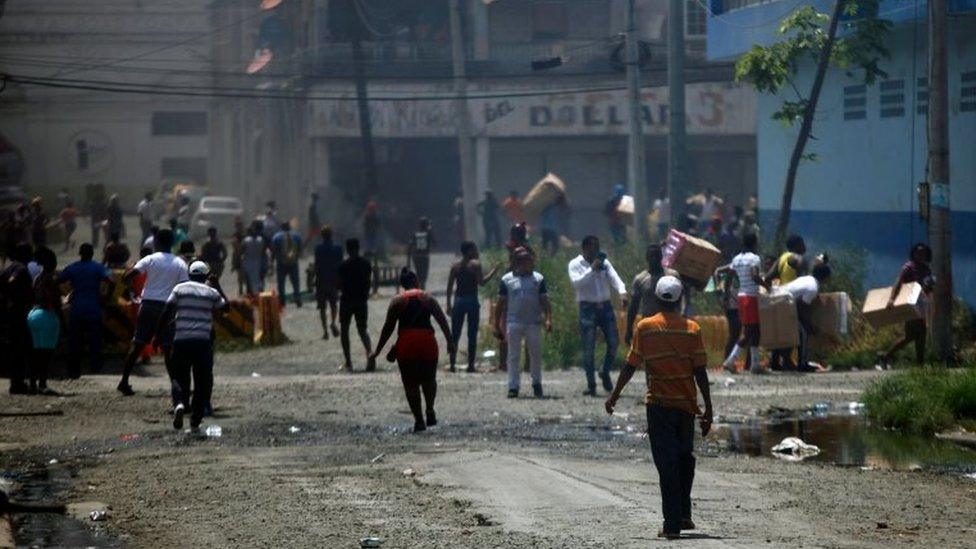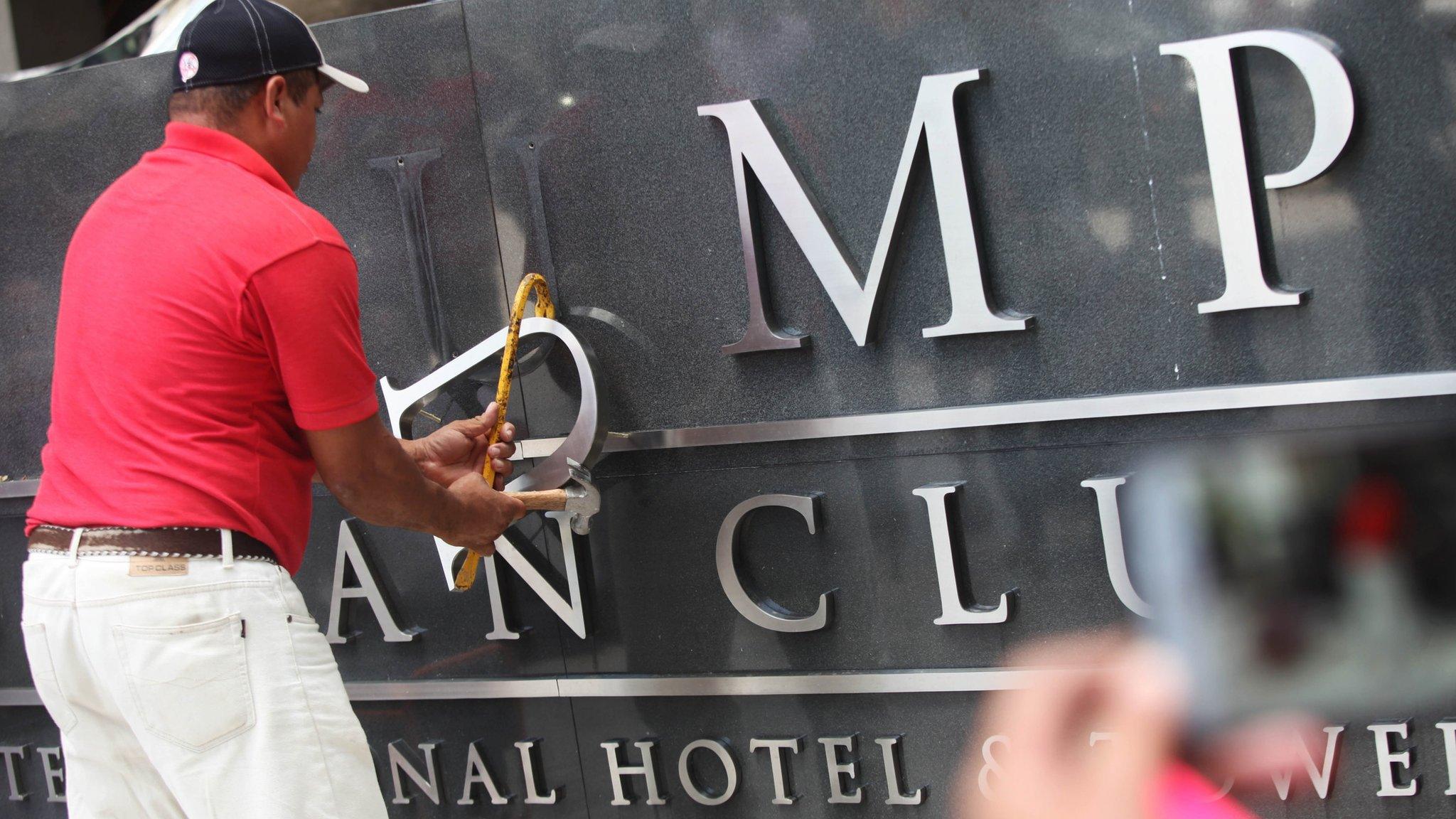Panama port city of Colón hit by rioting and looting
- Published

Protesters lit rubbish to barricade the streets
A strike is paralysing the Panamanian port of Colón for a second day running after protests against plans to regenerate the city turned violent.
Civic groups behind the protest said the plans were a sneaky way of trying to gentrify the city and drive poorer residents out.
The government of President Juan Carlos Varela argues the plans will benefit the people of Colón.
Four police officers have been injured and 45 people arrested.
A historic building in Colón's old quarter, Casa Wilcox, was burned down.

The main march proceeded peacefully but small groups broke off and caused trouble

Some stores were looted and five people, four of them police officers, were injured

The police were out in force
Interior Minister Álvaro Alemán blamed "delinquent groups backed by people driven by political interests" for the acts of vandalism and said the government would deal swiftly with those behind them.
While the city is home to the Colón Free Trade Zone, its residential areas have been neglected for years and its infrastructure left to deteriorate.
A contract worth $537m (£385m) for the city's regeneration was awarded in 2015 to a consortium made up of a Panamanian firm and scandal-hit Brazilian construction company Odebrecht.
Residents have complained about the slow pace of the works which include the renovation of the city's sewage system and its water supply.
They also say they fear the regeneration of the city's housing stock will see them driven out by rising prices.
Mr Alemán said the government would convene a council of ministers in April to examine the progress the regeneration project had made.
He also said the government had registered the discontent of those affected by the works and was willing to discuss ways to mitigate their effect.
- Published6 March 2018

- Published11 October 2017
